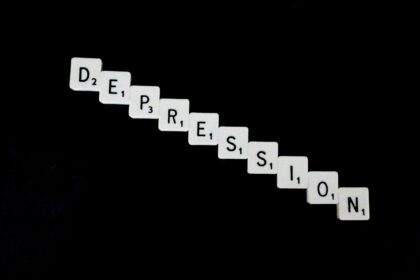Life has a way of piling on more than we think we can bear. Moments come when the weight of stress, sadness, or overwhelming challenges feels unbearable-and yet, in those exact moments, reaching out for help can feel like the hardest thing to do. But asking for help isn’t a sign of weakness; it’s a profound act of courage and self-love. In this article, we’ll explore how to find that strength within yourself, break down the barriers of fear or pride, and embrace the support that can lighten your load when life feels unbearably heavy. Because no one should have to carry their struggles alone.
Understanding the Courage Behind Reaching Out
Reaching out when life feels overwhelming is often seen as a sign of weakness, but in reality, it takes immense bravery to admit that we can’t do everything alone. Vulnerability is the gateway to true connection, allowing us to lean on others and share the weight of our burdens. This courageous step not only lightens the emotional load but also paves the way for healing and growth. It’s important to remember that asking for help is not a defeat but a declaration of self-awareness and strength.
Many people hesitate to seek support because they fear judgment or rejection, but the truth is that everyone experiences difficult times. When you reach out, you open the door to:
- Emotional relief through honest communication
- New perspectives that can inspire solutions
- Building a network of understanding and encouragement
- Gaining courage to face challenges head-on
Embracing help allows us to rewrite the narrative around struggle and resilience, transforming moments of despair into steps toward empowerment.
Recognizing Signs You Need Support and How to Acknowledge Them
Sometimes, the weight of our experiences creeps in unnoticed, masking itself under fatigue, irritability, or constant self-doubt. When moments of joy become scarce and everyday tasks seem overwhelming, it’s a silent whisper that your mind and heart might be craving support. Recognizing these subtle signals requires tuning into your emotional and physical state without judgment. Pay attention to recurring feelings like persistent sadness, withdrawal from loved ones, or unexplained changes in appetite or sleep patterns. These are not weaknesses but invitations from within to pause and reflect on what you truly need.
It’s okay to acknowledge that you’re struggling-this is the first powerful step towards healing. Remember that seeking help is a form of self-respect, not defeat. When faced with these emotions, consider confiding in trusted friends or professionals, or even jotting down your feelings to clarify what support looks like for you. Here are some common signs you might notice:
- Feeling isolated despite being surrounded by people
- Loss of interest in hobbies and activities that once sparked joy
- Frequent feelings of helplessness or hopelessness
- Difficulty concentrating or making decisions
- Physical symptoms like headaches, stomachaches, or unexplained pain
Building a Trusted Circle: Who to Turn to When Life Feels Overwhelming
When the weight of the world feels like it’s pressing down on your chest, the first step toward relief often lies in the company you keep. Building a trusted circle is more than just surrounding yourself with people; it’s about finding those rare souls who will listen without judgment and hold space for your vulnerability. These are the people who remind you that you are not alone, no matter how heavy life feels. They can be friends who carry your stories gently, family members who offer unconditional love, or mentors who provide steady guidance when your path gets unclear. Knowing who you can turn to creates a sanctuary of support-a lifeline when you feel like drifting.
Identifying your circle might feel daunting, but it’s important to remember that support can come from unexpected places. Here are a few key qualities to look for in your trusted allies:
- Empathy: Someone who understands your feelings without rushing to fix them.
- Reliability: A person who shows up, even when life is busy or messy.
- Discretion: Someone you feel safe confiding in, who respects your privacy.
- Encouragement: Those who believe in your strength, even when you doubt yourself.
Whether it’s a close-knit group or even one trusted individual, nurturing these connections gives you an anchor during life’s storms, making the overwhelming a little more manageable and the lonely a little less so.
Practical Steps to Ask for Help Without Feeling Vulnerable
Reaching out doesn’t mean you’re weak; it means you’re brave enough to acknowledge your humanity. Start by identifying *who* you feel safest with-maybe a close friend, a family member, or a professional counselor. Then, prepare what you want to say beforehand. Sometimes writing it down or practicing your words can ease the weight of vulnerability. Remember, expressing your needs is a form of courage, not a signal of failure.
Keep in mind some simple approaches to frame your request in a way that feels empowering:
- Be clear and specific. Let them know exactly what support you need, whether it’s a listening ear, advice, or practical help.
- Use “I” statements. Focus on your feelings and experiences to create honest and open communication.
- Normalize the ask. Remind yourself and others that everyone needs help sometimes; it’s part of being human.
- Set boundaries. It’s okay to say what you’re comfortable sharing and when you might need space.
These steps shift the narrative from vulnerability to connection, helping you build a stronger support network while honoring your emotional strength.
Final Thoughts
Remember, asking for help is not a sign of weakness-it’s a brave step toward healing and growth. Life’s weight may feel unbearable at times, but you don’t have to carry it alone. Reaching out opens the door to support, understanding, and connection. So when the heaviness presses in, give yourself permission to say, “I need help.” In that simple act, you’ll find strength you never knew you had-and maybe, just maybe, the light you’ve been searching for. You’re not alone, and help is always within reach.
















